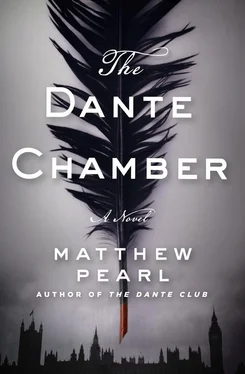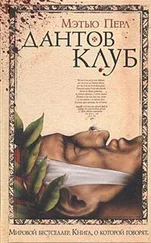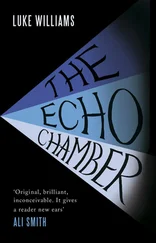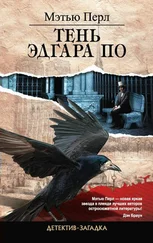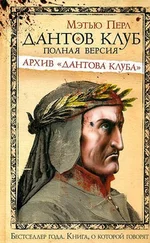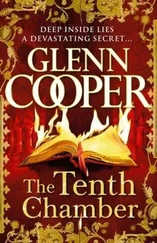“Any excuse to read Dante, Miss Rossetti,” Cayley said, flashing his awkward smile, “counts as a good one.”
“Just what my father would say, Mr. Cayley.”
Christina and Browning traveled by steamer to the North Woolwich Gardens, a simple recreation space with a small lake at the center. The newspaper articles they collected, with all their shouting declarations about the unacceptable and hideous crime against a member of Parliament, were sparing in reliable details about the exact location. Christina wanted to see it for herself.
Browning lamented that the gardens seemed completely deserted. It was frigid and foggy. There were few people whom they could even try to question.
“I suppose such an event frightens some people away, at least until a new spectacle makes them forget,” Christina mused, looking up at the gray sky through a canopy of tree branches.
Thinking of the recent overturning of her tightly controlled routines, Christina had a revelation.
“The time,” she said to Browning.
Routines: every person of every class had them — even if most were not as devoted to them as Christina. She proposed that they return closer to the time of day the body was found. Browning protested the gardens would not be safe in the darkness or at dawn, but Christina was undeterred. They would be more likely to encounter individuals whose routines had taken them there at the same time as the awful discovery. After passing time on their own, they reunited at the gardens.
Christina’s conjecture seemed correct. Despite the cold, the gardens came alive under the cover of darkness. Young women — their painted cheeks and bright-colored garments enhanced by the moonlight, putting on a display for passing men — shied away from the obtrusive light of the lantern Browning held up. Soon enough, several recognized Christina and waved her over.
After a few minutes, she returned to Browning and explained that she knew several of the girls from her work with Saint Mary’s penitentiary for fallen women — they had stayed there in the past, but left by their own will, or had been asked to leave the charity home for intoxication or other misbehaviors.
“They worry you are one of the men who come here to inspect them,” Christina reported to Browning.
The Contagious Disease Acts authorized the government to order physical inspections of prostitutes and lock them up if they were found to have signs of venereal diseases, with the stated purpose of protecting soldiers.
“Is that what I look like?” Browning protested.
“I’ve convinced them, Mr. Browning, that regardless of appearance, you are not.”
Browning came back with her to the circle of girls, and Christina asked each one if she had been present in the gardens when the politician collapsed dead. Christina also brought one of the many thick sketchbooks from Tudor House filled with Gabriel’s self-portraits as well as other drawings, to determine whether any of the girls happened to have spotted her brother around London. Some of the sketches were in pen and ink, others in pencil or in red chalk. None of the girls whom Christina interviewed remembered seeing Gabriel at all recently, and none owned up to being in the gardens at the fateful moment in question, but one of the girls quietly slipped away and returned with another on her arm.
“Pamela’s my sister; she was there,” said the first girl. “Now don’t be shy, Pam! Miss Rossetti is as true as the sun, strike me blind and dead.”
“I won’t be reclaimed , miss,” protested her sister, as she flailed her arms around as though ready to fight Christina, “if that’s what you’re after, to reclaim my soul at Saint Mary’s!”
“My name is Christina, and I’ve come for my own purposes. I’m trying to find my brother, I believe he is in danger, and we’re here only for information. Could you possibly show us what happened to Mr. Morton?”
This girl, whose messy, thick orange hair surrounded her head like a crown, reluctantly led them to a clearing. She pointed out where she first saw the doomed man walking, hunched over, and then again after he fell to the ground and she and other onlookers rushed to see what happened. She recalled his wobbly steps, and how they thought he was a hunchback at first.
“I know him!”
The declaration, interrupting their interview with the witness, came from another girl in the group, one of the youngest. She was a waif of sixteen wearing golden garments and a bonnet decorated with flowers. She and two other girls had taken hold of the sketchbook, mostly as a novelty, and were thumbing through the drawings by the light of Browning’s lantern.
“Gabriel? You’ve seen Gabriel?” Christina asked with breathless anticipation. She hurried over.
The waif wasn’t looking at one of Gabriel’s self-portraits. She had come across a different sketch pasted into the book, one Gabriel had made of painter Arthur Hughes, a member of the generation of artists who considered themselves avid followers of Gabriel’s.
Christina pressed, asking how she knew the man. Her defiant shrug answered the question.
“When was the last time you had a meeting with that man?” Christina asked, continuing the gentle tone.
“It was right here. Nearly two weeks ago. The same night, matter of fact, as...,” she began, her gaze falling, her long arms wrapping around her narrow middle. “When that poor fellow was found, his neck broken under that stone, we heard the hubbub and came to see, like everyone else who was near.”
Christina itched to go right to Hughes’s studio when they left the gardens, but she suspected that he’d be asleep for hours more. Like Gabriel, most of the London artists tended to paint until late at night and then sleep through the afternoon. Browning accompanied her back to Tudor House, where they were surprised to find William asleep at the library table, his head buried in the crook of his arm. Around him, in addition to the now-well-worn booklet on the Dante murders of Boston, and Bobby the inquisitive owl, were various editions of the Divine Comedy , as well as an assortment of American poetry volumes and novels. He stirred, and cleared his throat when they entered.
“William, didn’t you ever go home to sleep?” Christina asked.
“I suppose I lost sense of time,” William replied, waving around an edition of Paradise until the owl fluttered off. He returned to the Dante murders pamphlet he’d been examining. “This little booklet is rather atrocious in its content, Christina, but I must confess it’s difficult to put away. The crimes examined within it, the murders that supposedly came to pass in Boston, were re-creations of Dante’s vision of Hell in the modern world. The culprit there, we can rest assured, is no longer capable of doing harm.”
“But if the perversion behind those events has now spread, if someone has decided to carry them forward from Inferno to Purgatory and from Boston to London, then we must understand how this started,” Browning replied. “You are performing a great service, Mr. Rossetti.”
“Kind encouragement for a tired man,” William said, his voice charged with skepticism. “I’m afraid it is almost impossible to divide the fantasy from the truth in a scribbler’s tract such as this. However, I have made progress, I like to believe, in identifying the aliases of some of the individuals dramatized here. The literary men, in particular. I believe one, called Kensington here, a translator secluded in a mansion described as yellow as the sun, is the famous Mr. Longfellow himself, and another, a short man called Gabbert described as possessing special medical training as well as poetical skills, I’ve determined is meant to represent Boston’s celebrated Dr. Holmes. Now, there is also a noble investigator, hired, according to the story, by Universe College — that’s Harvard, naturally — to shadow the scholars. I am trying to match this investigator with a real name. If we could find out who his model is, and write to him, he may know—”
Читать дальше
